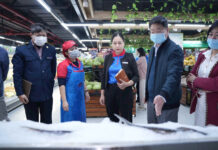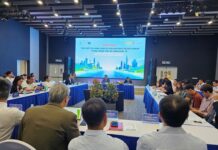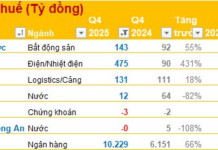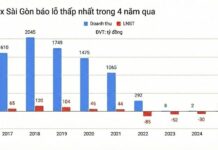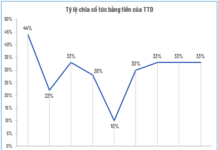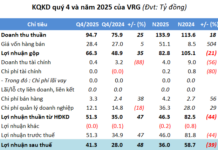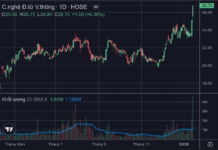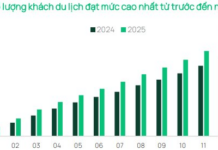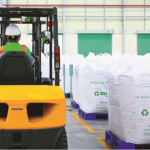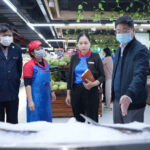In a conversation with the author, Mr. Thang argues that plastic should not be viewed solely as “waste,” but rather as part of a circular economic value chain. Proper recycling processes transform post-consumer plastic into valuable raw materials for industries like fashion, construction, technology, and household goods. Globally, many brands now incorporate recycled plastic into shoes, clothing, and accessories. Similarly, construction projects increasingly use recycled plastic as a sustainable alternative to traditional materials, conserving forest resources and reducing costs.
In Vietnam, companies such as Stavian, Duy Tan, and An Phat have invested heavily in recycling technology and collection systems, laying the groundwork for a circular economy in the plastics sector. These efforts reflect a shift from traditional manufacturing toward sustainable practices, aligning with global trends.
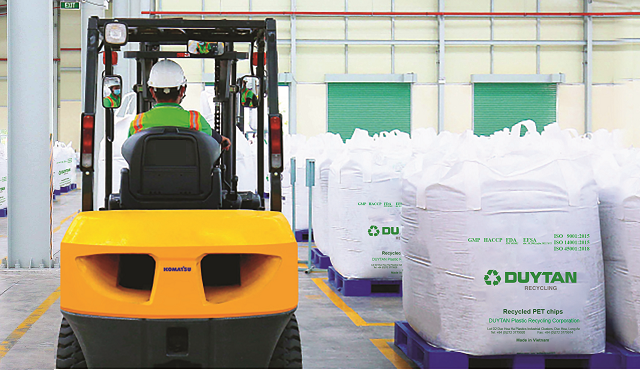 Inside Duy Tan Plastic Recycling Corporation’s recycled plastic pellet production facility
|
According to 2024 statistics, Vietnam’s plastics industry generated $31.5 billion in revenue, with exports nearing $10 billion. In the first seven months of 2025 alone, the country imported 5.55 million tons of raw plastic materials, valued at over $7.3 billion, marking a significant increase year-over-year. Vietnamese plastic products are now present in over 190 countries, including demanding markets like the US, EU, and Japan.
Mr. Thang highlights that plastic has a lower carbon footprint than many traditional materials, making it ideal for fuel-efficient and low-emission industries like transportation. Rapid urbanization in Vietnam has also driven demand for plastic in construction. Additionally, the rise of e-commerce and the growing middle class have boosted consumption of plastic packaging and household items.
As global focus shifts toward sustainability, investing in recycled plastics and bio-based materials is no longer optional but imperative. The Association’s Chairman notes this transition not only expands export opportunities but also enhances Vietnam’s brand on the global stage.
“Plastic isn’t the problem—it’s part of the solution when used and recycled responsibly. Achieving a sustainable future requires collaboration among policymakers, businesses, and consumers in product design, waste sorting, and efficient collection,” Mr. Thang emphasizes.

Mr. Dinh Duc Thang – Chairman of the Vietnam Plastics Association
|
At the 2025 International Plastics and Rubber Exhibition (Vinaplast), the Association highlighted persistent barriers to recycling investment. Ms. Huynh Thi My, Vice Chairwoman, noted that many companies face challenges securing land or industrial park permits due to pollution concerns associated with recycling.
Waste collection remains inefficient. Vietnam consumes 4-5 million tons of plastic annually, yet most waste is improperly managed, with significant amounts burned or landfilled. Recycled plastic quality is also inconsistent.
To address these issues, the Vietnam Plastics Association has urged the government to establish dedicated circular economy industrial zones and expand Extended Producer Responsibility (EPR) mechanisms. These measures, Ms. My explains, will create a supportive framework for businesses to invest in recycling, meet international standards, and advance Vietnam’s sustainable development goals.
Vietnam’s Plastics Industry Faces Major Recycling and Collection Challenges
– 09:02 23/09/2025
Unlocking Circular Economy: Recycling as the Key, Says Vietnam Plastics Association Chairman
For years, plastic has been widely regarded as a primary culprit of environmental pollution. However, according to Dinh Duc Thang, Chairman of the Vietnam Plastics Association, when properly managed, plastic can transform into a vital renewable resource. This not only conserves energy but also reduces emissions and supports green growth objectives.
Global Packaging Leader Champions Circular Economy Initiatives in Vietnam
Recently, Tetra Pak unveiled its Sustainability Report for the 2024 fiscal year (FY24), highlighting a 25% reduction in greenhouse gas (GHG) emissions across its entire value chain since 2019, with a further 5% improvement achieved since 2023.
Green Transportation Transition: Hanoi and Ho Chi Minh City Must Implement Citizen Support Policies
The Government Office has issued a directive urging the People’s Committees of Hanoi and Ho Chi Minh City to promptly disclose their roadmaps for transitioning to green transportation. This announcement emphasizes the need for clear, actionable support policies to accompany the shift toward sustainable mobility solutions.

